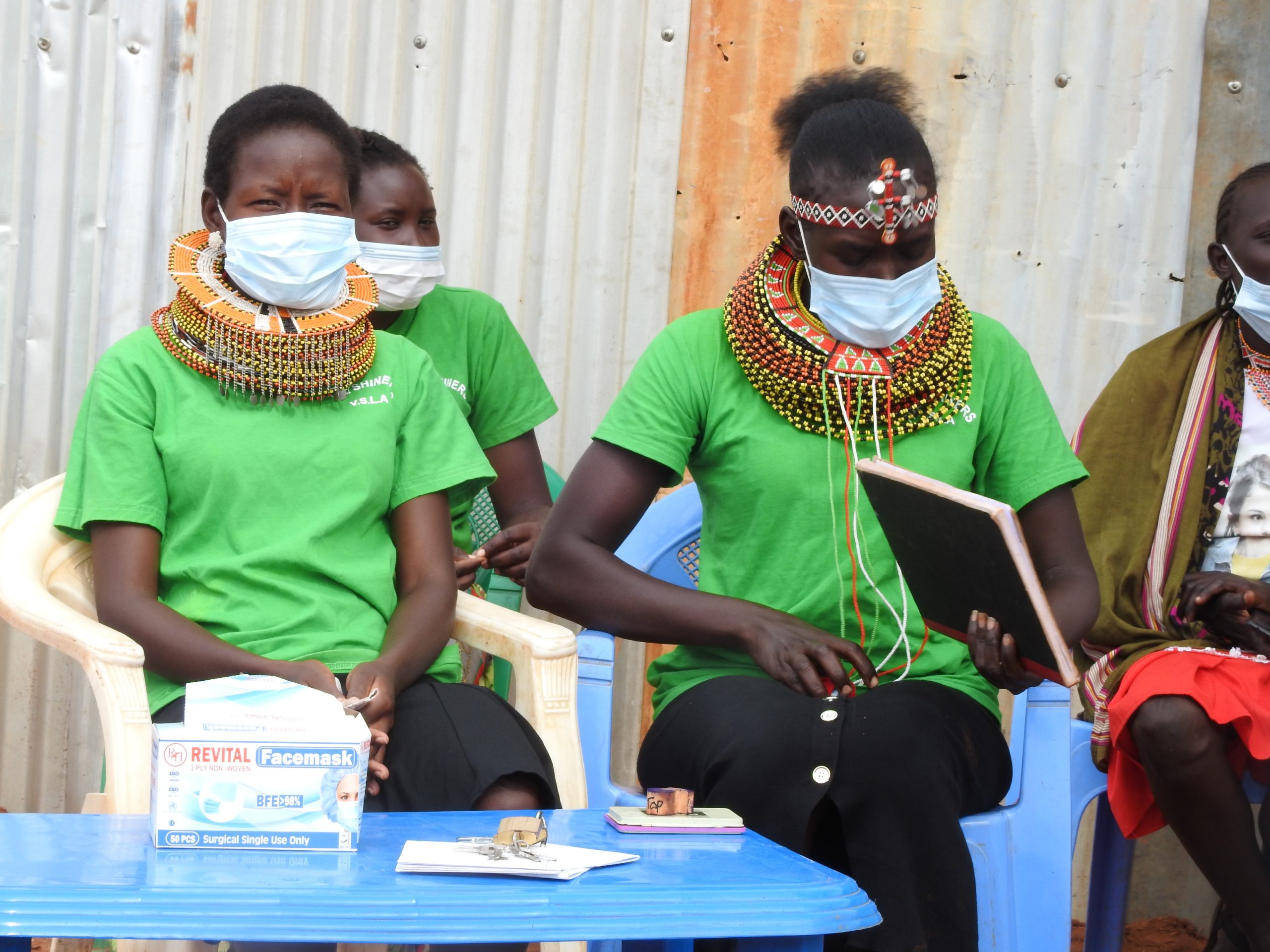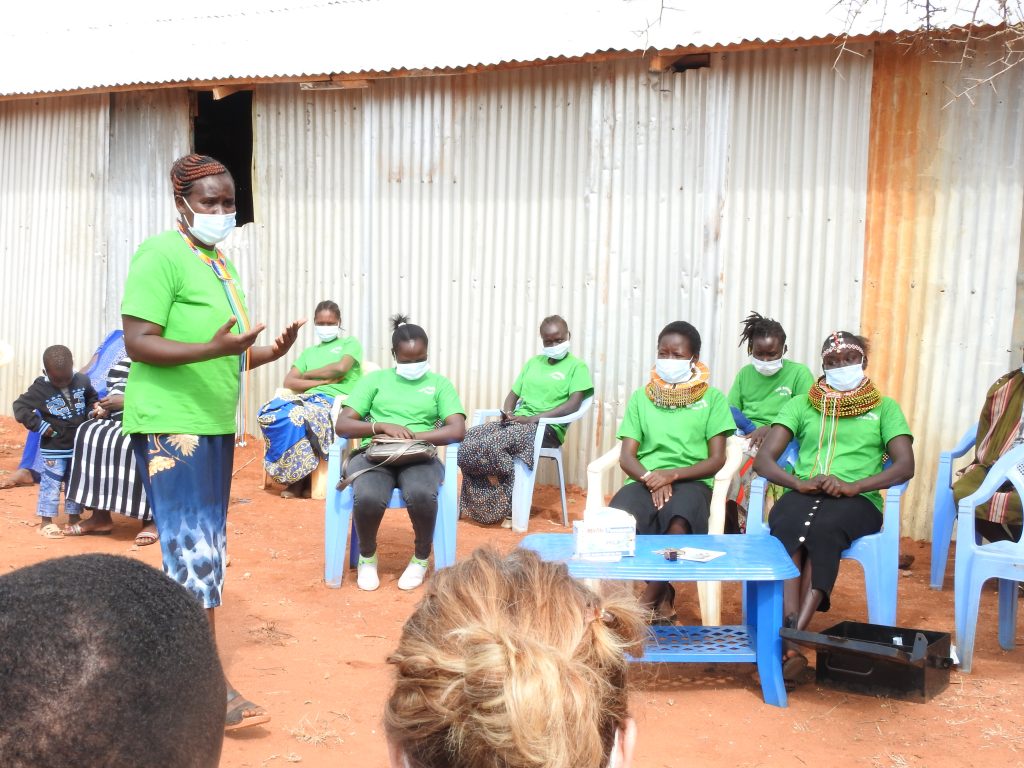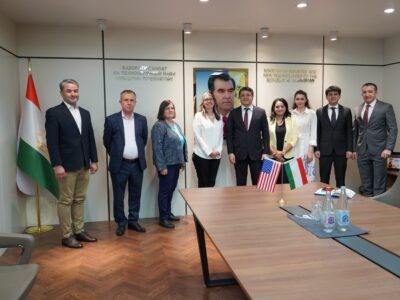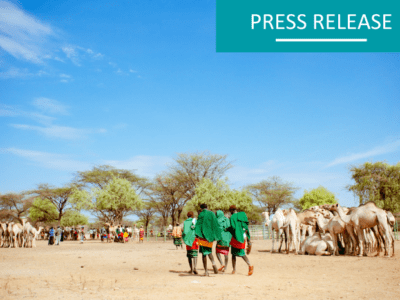
Twenty-two-year-old Diana Camilla is the chairperson of the Shiners Girls Improving Resilience through Livelihoods (GIRL) group in the Ngaremara area of Isiolo County in Northern Kenya. The members of the Shiners GIRL group have faced numerous challenges throughout their lives, such as female genital mutilation, gender-based violence, child marriage, and teenage pregnancy, which have robbed them of their right to education and other life opportunities. At a young age, they carry the burden of caregivers.
The GIRL model supports the inclusion of adolescent girls in economic market systems. Through the model, adolescent girls engage in a nine-month safe space program that equips them with literacy, numeracy, and life skills. They learn about reproductive health, nutrition, financial literacy, and business, which enables them to become more engaged within the local markets. Mercy Corps’s GIRL model is part of the USAID-funded Feed the Future Kenya Livestock Market Systems Activity, which is co-implemented by ACDI/VOCA, Mercy Corps, the BOMA Project, and Smart Regional Consultants.
The Shiners GIRL group started with 25 girls who were first taken through a counseling program by their mentor, Mary Goretti, focusing on safe spaces to ease the effects of trauma. Since some of the girls already had families, they were educated on family planning to help to reduce cases of poverty and malnutrition in families.
“From the time we were taught about family planning, the number of children born in our village has reduced. The cases of Kwashiorkor have also reduced drastically.”
–Diana Camilla, chairperson of the Shiners Girls Improving Resilience through Livelihoods (GIRL) group, Ngaremara area, Isiolo County, Northern Kenya.

Diana and others in the group attest that the training helped them realize their potential. They were able to start new income-generating activities, as most of the girls were no longer enrolled in school.
Resilience Through Investments and Financial Literacy
Members learned to initially save 20 shillings each per week, for a total of 30,000 shillings in savings after nine months. Then, Mercy Corps invited the World Food Programme to train the girls on how and where to invest their savings. The group decided to invest in small-scale farming, which greatly improved nutrition among their households.
With time, the members upgraded to saving 100 shillings each per week for one year, amounting to 431, 000 shillings. The following year, the group agreed to contribute 200 shillings each per week. Currently, the group saves 500 shillings each per week. Members can receive loans at 10 percent interest for personal or business use.
Each girl is running at least a small-scale business of their choice, ranging from retail, sewing, and livestock (goats) to butchery. Members learned about recordkeeping to track their business transactions, which is a skill that will promote the resilience and sustainability of their businesses. Two members even qualified for grants given by Mercy Corps to support their businesses.
Resilience Through Education
Some members had dropped out of school and lost hope of continuing with their education. Being a part of the Shiners GIRL group encouraged them to return. One of these girls is currently pursuing nursing. Diana proudly shared that the group also rescued a girl from being married off to a 70-year-old man. The girls marched toward the girl’s home, where they verified that it was true. They called on the Activity to intervene. In doing so, they have become role models to younger girls in the community, motivating them to desire an education.
“Through the example that we have set, I can attest that no girl can be married off without their consent in our village today.”
–Diana Camilla, chairperson of the Shiners Girls Improving Resilience through Livelihoods (GIRL) group, Ngaremara area, Isiolo County, Northern Kenya.
Future Aspirations
The group has not been without challenges. In 2019, a locust invasion damaged their produce, and they lost their first harvests. Despite the setback, the girls rose up and continued with their investments. With the skills and knowledge they gained from the training, the group aspires to invest further in their economic activities, including land ownership, large-scale poultry farming, and large-scale beadwork. They aim to sell their products in the Isiolo market. Their agricultural contributions will also play a crucial role in alleviating hunger and malnutrition in Northern Kenya by diversifying the types of food available to households. In addition, the group is keen on supporting younger girls in the area by conducting regular outreach to schools to educate girls on their rights.
Learn more about the group through this video link.
Learn more about the Feed the Future Kenya Livestock Market Systems Activity here.






